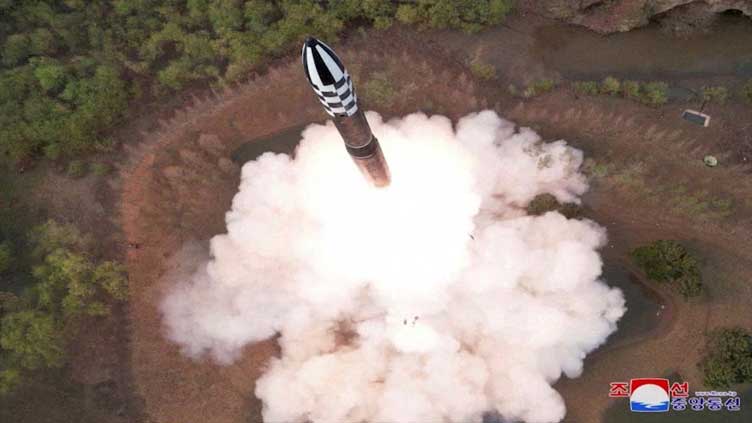Japan, South Korea to link radar systems to track N.Korea missiles

World
Japan, South Korea to link radar systems to track N.Korea missiles
TOKYO, May 9 (Reuters) - Japan and South Korea are set to agree early next month to link their radars via a U.S. system to share real-time information on North Korea's ballistic missiles, a person with knowledge of the matter said on Tuesday.
Defence ministers from Japan, South Korea and the United States plan to reach an agreement on the sidelines of an Asian defence summit to be held in Singapore early next month, said the person, who declined to be identified because the discussions are not public.
The Japanese government's top spokesperson, Hirokazu Matsuno, said no decision has been made yet on the planned agreement, without elaborating.
South Korea's presidential office said the country would form a group with Japan and the United States to share information about North Korea's missiles, news agency Yonhap reported.
The system was currently in the works, the report said, citing a senior official.
A South Korean defence ministry spokesperson told a briefing earlier that the three countries have been in talks to boost information sharing but nothing had been finalised.
With North Korea launching ballistic missiles at an unprecedented pace in the past year, the three countries in November agreed to speed up information-sharing. Japan and South Korea are independently linked to the United States' radar systems but not to each other.
Ties between the United States' Asian allies have warmed in recent months in the face of the North Korean threat. Resuming their "shuttle diplomacy", Japanese Prime Minister Fumio Kishida met with South Korean President Yoon Suk Yeol in Seoul on Sunday, where they confirmed progress in defence cooperation.
Defence ministers from Japan and South Korea are separately arranging to meet on the sidelines of the IISS Shangri-La Dialogue to be held in Singapore from June 2-4, in what would be the first such meeting since November 2019.

